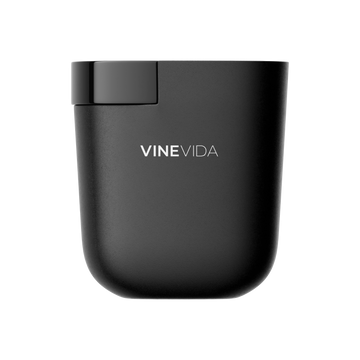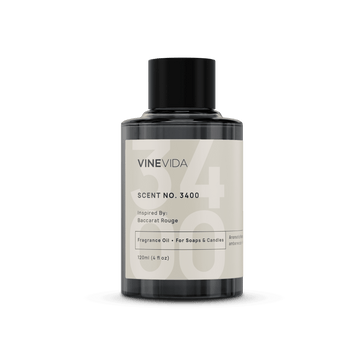Understanding the Power of Rosemary Oil for Scalp Health
If you’ve ever struggled with dandruff or a persistently dry, itchy scalp, you’re not alone. These conditions affect millions and for many, the search for a natural, non-irritating solution is ongoing. Enter: rosemary essential oil.
Used for centuries in herbal medicine, rosemary oil is now gaining serious traction as a powerful, plant-based remedy for a wide range of scalp issues. But does it actually work for dandruff and dry scalp?
In this article, we’ll explore the science-backed benefits of rosemary essential oil, how it targets scalp inflammation and flakiness, and how you can use it safely and effectively to restore your scalp’s health.

Why Dandruff and Dry Scalp Happen
Before diving into the benefits of rosemary oil, it’s important to understand the root causes of these conditions.
Dandruff is often caused by:
-
Overgrowth of Malassezia, a yeast-like fungus on the scalp
-
Excess oil production
-
Sensitivity to hair products (contact dermatitis)
Dry scalp, on the other hand, typically results from:
-
Cold weather or dry air
-
Harsh shampoos or overwashing
-
Dehydration or nutrient deficiency
Though the causes differ, both lead to similar symptoms: flaking, itchiness, and irritation. Both also benefit from a nourished, balanced scalp — something rosemary oil can support.

How Rosemary Oil Helps with Dandruff and Dry Scalp
1. Antifungal Properties
Rosemary essential oil contains compounds such as 1,8-cineole and alpha-pinene, known for their antifungal properties. These compounds help address the Malassezia fungus often associated with dandruff.
A 2017 review in Molecules highlighted rosemary oil’s antimicrobial activity, including effectiveness against fungal strains linked to skin irritation.
Source: Molecules Journal, MDPI
2. Scalp Hydration and Circulation
Rosemary oil is known to increase blood circulation in the scalp, encouraging the transport of essential nutrients and sebum to the skin’s surface. This can help relieve tightness and dryness while promoting overall scalp health.
Paired with carrier oils like:
-
Jojoba oil
-
Argan oil
-
Coconut oil
…it creates a powerful blend that helps lock in moisture and reduce irritation.
3. Balances Oil Production
One of rosemary oil’s lesser-known benefits is its ability to help regulate sebum production. For those with oily roots and dry ends — or flaky patches and greasy buildup — rosemary oil helps normalize the scalp environment.
4. Reduces Itchiness and Inflammation
Rosemary oil contains anti-inflammatory and antioxidant compounds that help calm irritation. This makes it ideal for those experiencing redness, itching, or general sensitivity from dry scalp conditions.
Rosemary Oil vs. Traditional Dandruff Products
| Feature | Rosemary Oil | Common Dandruff Shampoo |
|---|---|---|
| Ingredients | 100% natural, plant-based | Often synthetic with sulfates |
| Hydration Support | Yes | Can be drying with frequent use |
| Long-Term Benefits | Supports overall scalp health | Mostly symptom-focused |
| Daily Use Compatibility | Safe when diluted properly | May irritate with repeated use |
How to Use Rosemary Oil for Dandruff and Dry Scalp
1. Pre-Shampoo Scalp Treatment
Mix:
-
3 to 5 drops of rosemary essential oil
-
1 tablespoon of carrier oil (such as jojoba or coconut oil)
Massage into the scalp for 5 to 10 minutes and leave on for at least 30 minutes before shampooing.
Product suggestion:
Rosemary Essential Oil – Premium Grade from VINEVIDA
2. Add to Shampoo
Add 3 to 4 drops of rosemary oil per ounce of your shampoo. This allows for regular exposure to the oil without changing your haircare routine.

3. Overnight Leave-In Treatment
Mix 2 to 3 drops of rosemary oil with 1 tablespoon of argan oil. Massage into the scalp and leave overnight. Rinse out in the morning.
Prefer a regional product? Try:
Rosemary Essential Oil (Spain) from VINEVIDA
How Often Should You Use It?
-
For active dandruff or dry scalp flare-ups: 2 to 4 times per week
-
For maintenance: Once per week
-
Always start with a patch test to ensure no sensitivity
When Will You See Results?
| Week | Expected Improvement |
|---|---|
| 1 | Reduced itching, calmer scalp |
| 2-3 | Less flaking, better moisture retention |
| 4+ | Healthier scalp with reduced recurrence |
Consistency is key. Daily or weekly use can yield visible changes within one month.

Frequently Asked Questions (FAQ)
Q: Can rosemary oil make dandruff worse?
A: Not when used correctly. However, using undiluted essential oil may irritate sensitive scalps. Always dilute with a carrier oil.
Q: Is rosemary oil safe for color-treated hair?
A: Yes. Rosemary oil is generally safe and non-stripping when diluted properly. Always perform a patch test first.
Q: Can I use rosemary oil on children for dry scalp?
A: It's best to consult with a pediatrician. Essential oils should be used with caution on children under 12.
Q: How is rosemary oil different from tea tree oil for dandruff?
A: Both have antifungal properties, but rosemary oil also stimulates blood flow and supports hair growth, making it a broader treatment option.
Final Thoughts
Dandruff and dry scalp don’t have to be a long-term struggle — especially when nature offers an effective, science-backed solution like rosemary essential oil.
With its antifungal, anti-inflammatory, and scalp-nourishing properties, rosemary oil is one of the most promising natural remedies available today. And with regular, safe use, it can help you restore balance, reduce flakes, and maintain a healthier scalp over time.

Disclaimer:
The information provided in this article is for educational purposes only and is not intended as medical advice. Always consult with a healthcare professional before beginning any new treatment, especially if you have sensitive skin or underlying conditions. Individual results may vary depending on factors such as hair type, scalp health, consistency of use, and overall wellness.
Explore VINEVIDA’s rosemary oil selection to get started:
Source:
Kumar, P., & Purohit, P. (2017). Antimicrobial Activity of Rosemary (Rosmarinus officinalis L.) Essential Oil Against Common Skin Microorganisms. Molecules, 22(9), 1649. MDPI. https://www.mdpi.com/1420-3049/22/9/1649














